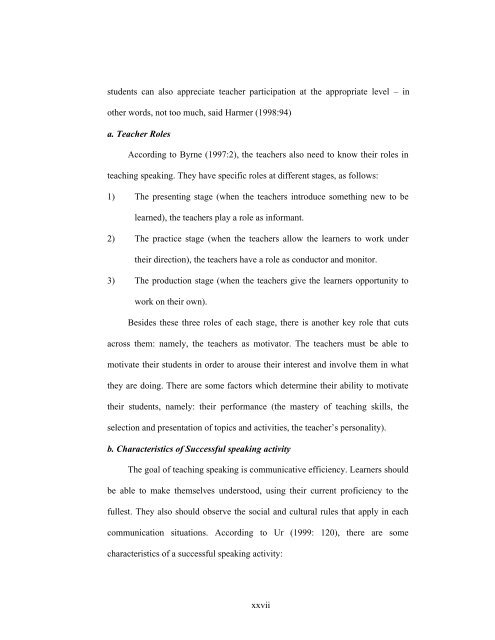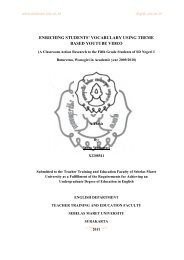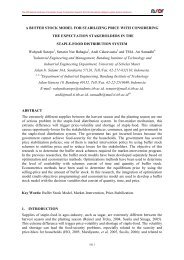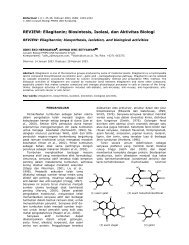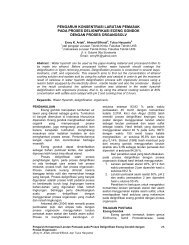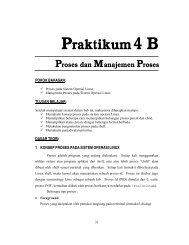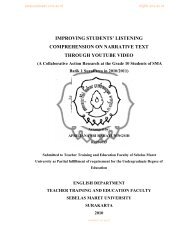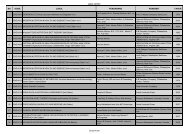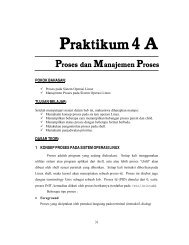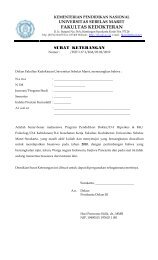IMPROVING STUDENTS' SPEAKING PROFICIENCY USING GAMES
IMPROVING STUDENTS' SPEAKING PROFICIENCY USING GAMES
IMPROVING STUDENTS' SPEAKING PROFICIENCY USING GAMES
You also want an ePaper? Increase the reach of your titles
YUMPU automatically turns print PDFs into web optimized ePapers that Google loves.
students can also appreciate teacher participation at the appropriate level – inother words, not too much, said Harmer (1998:94)a. Teacher RolesAccording to Byrne (1997:2), the teachers also need to know their roles inteaching speaking. They have specific roles at different stages, as follows:1) The presenting stage (when the teachers introduce something new to belearned), the teachers play a role as informant.2) The practice stage (when the teachers allow the learners to work undertheir direction), the teachers have a role as conductor and monitor.3) The production stage (when the teachers give the learners opportunity towork on their own).Besides these three roles of each stage, there is another key role that cutsacross them: namely, the teachers as motivator. The teachers must be able tomotivate their students in order to arouse their interest and involve them in whatthey are doing. There are some factors which determine their ability to motivatetheir students, namely: their performance (the mastery of teaching skills, theselection and presentation of topics and activities, the teacher’s personality).b. Characteristics of Successful speaking activityThe goal of teaching speaking is communicative efficiency. Learners shouldbe able to make themselves understood, using their current proficiency to thefullest. They also should observe the social and cultural rules that apply in eachcommunication situations. According to Ur (1999: 120), there are somecharacteristics of a successful speaking activity:xxvii


